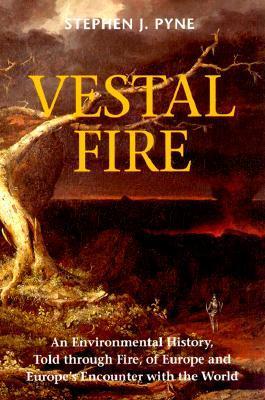What do you think?
Rate this book


672 pages, Paperback
First published January 1, 1997
But Nature is not so easily reconstructed as city blocks, the plastic arts, and printed texts. It exists apart from humanity. Its fires have a logic and imperative of their own. At best all anthropogenic fire is a hybrid, a dialectic, a pyric double. Europe's fire is no exception. (p. 6)
The choices people made about how to use and interpret fire transcended the biotic arrangement of combustibles and the diurnal rush of mountain winds. They became, in a profound sense, moral questions for which the richness of fire's symbolism was as significant as the moisture content of its fuels. The cycle of fire went beyond the circuitry of carbon and phosphorus and entered a mythic, ultimately moral universe that it has never since left. (p. 49)